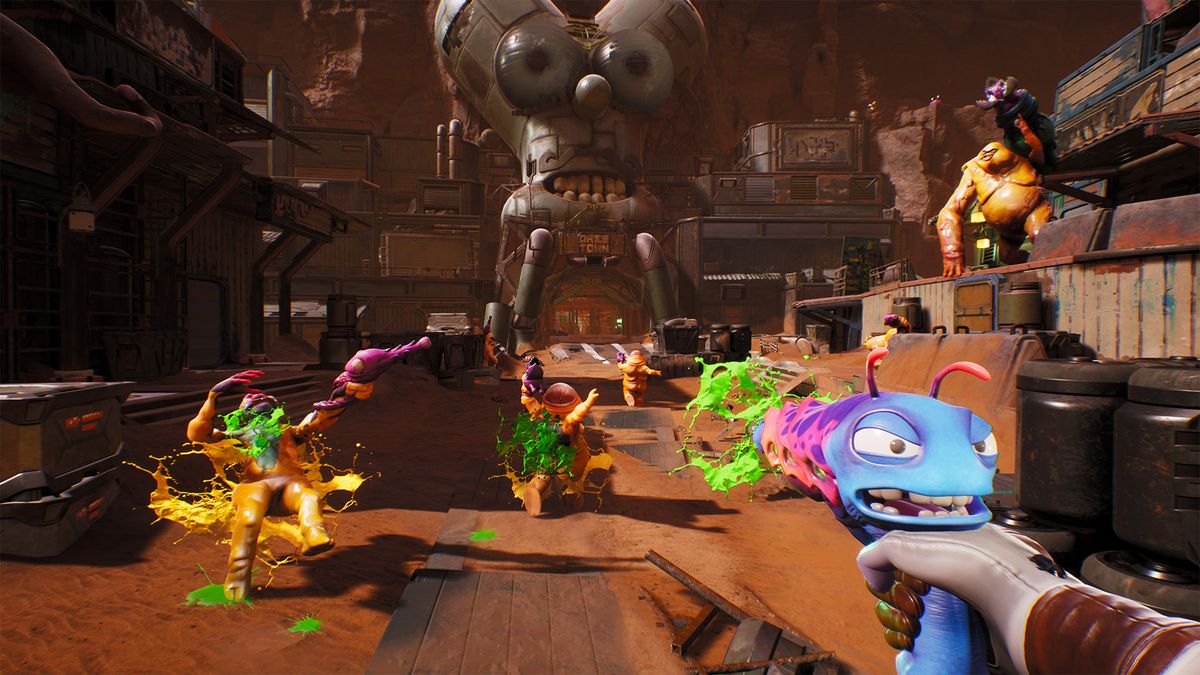Your favourite sci-fi and fantasy magazine celebrates its 18th birthday this weekend
It was 18 years ago today that SFX burst onto the sci-fi scene, with Tank Girl on the cover and a fresh, fun approach to TV, books, comics, film and games.
Here you can watch a 20-minute video hosted by Dave Bradley (current editor-in-chief) direct from the SFX office, in which Adrian Hill and Dave Golder, the longest serving members of the team, reminisce about the launch and the magazine’s subsequent highlights. If nothing else it’s a glimpse into SFX Towers…
And here’s one for nostalgia hounds. Back in 2010, when SFX was a mere 200 issues old, the launch editor Matt Bielby (now editing Comic Heroes ) wrote a piece for us about setting up the original SFX . And here’s that article in its entirety for you to enjoy. Thanks for sticking with us all these years, folks! Here’s to the next 18.

Matt Bielby, launch editor
The early SFX struggled with useless “assets” (by which I mean blurry pictures and bugger all access to talent) and horrible fallow periods, where shows like Bugs were grasped desperately as “the future of British SF”. But at the same time it foresaw the world of today, where SF and fantasy has colonised popular culture. It’s nice to think that those first issues – rough around the edges, but infinitely cooler and slicker than any SF mag until that point – played their small part in the rehabilitation of science fiction.
From the start, and vital to its success, SFX was a labour of love. It was born of the mid-’90s, a period when (in publishing at least) anything could happen. Specifically, the technology-driven Future Publishing was snowballing in size. SFX grew from Future’s ambition, and from the desire of a few of us there to do a magazine that wasn’t about PC sound cards for a change. Luckily for me, my personal stock was pretty high. I’d had success launching gaming titles, and it felt like the time was right to try pushing a dream project past the board. Happily, the door was ajar: others had seen that SF was having one of its periodic blips too, driven largely by the crossover appeal of The X-Files , the first SF show in years that civilians loved. Like Buffy and Doctor Who in later years, it would become a vital cornerstone of the magazine.
Looking back at early plans for the title, it’s clear how much we took from the established Future games mag formula, as well as such obvious role models as Q and Empire . And thank goodness, because there was no time for soul-searching: SFX was launched incredibly quickly by modern standards (three or four months from initial plan to first issue), with not a focus group in sight. If the team thought something should be in the mag, in it went.
Amongst the decisions we made quickly: the name, SFX (we wanted it short and snappy, and adding a third letter to “SF” was about as punchy as we dared go; nominally, though rarely stated, the “X” stood for something like eXcitement, but if anyone thought we didn’t know the visual implication of those letters they’re dreaming); the bright, “posterised” treatment of early cover images, forced upon us by the hopeless image quality of the time; the little retro-cool illustrations by the great Rian Hughes; and assorted tricky details, designed to give the thing confidence and depth. Personally, I still like the idea of reviewing in “school report” fashion, with A+ and B- scores, but even I know what a pointless waste of time my Worst Idea Ever was – a hateful page number device that “spun-around”, so no two were the same.
The launch was a rush. We’d planned Batman Forever for the front, but were landed with Tank Girl . I remember shilling the magazine on the BBC’s Good Morning With Anne And Nick , tucked away on an improvised “starfield” set (actually, black bin bags and fairy lights) with a grubby K-9, freshly rescued from some BBC props cupboard and missing one of his little casters. Our launch party, at the Creature Workshop in Camden – complete with transvestite bar staff, a randy Dalek and two Doctors (Davison and a typically frisky Pertwee) – is a blur.
But the best memories are of the simple fun of trying new things, our little team feeling its way towards a magazine that was funny and clever and kind and cutting: the sort we’d all wanted to read, and which SFX remains. I loved the way the right people – from Golder to Langford to MJ Simpson – seemed magnetically attracted to the title. Along with art editor Matt Williams, who (against all odds) made SFX look glorious, they helped shape a very special magazine: one to respect, but one to love too.
 Game News Video Games Reviews & News
Game News Video Games Reviews & News



